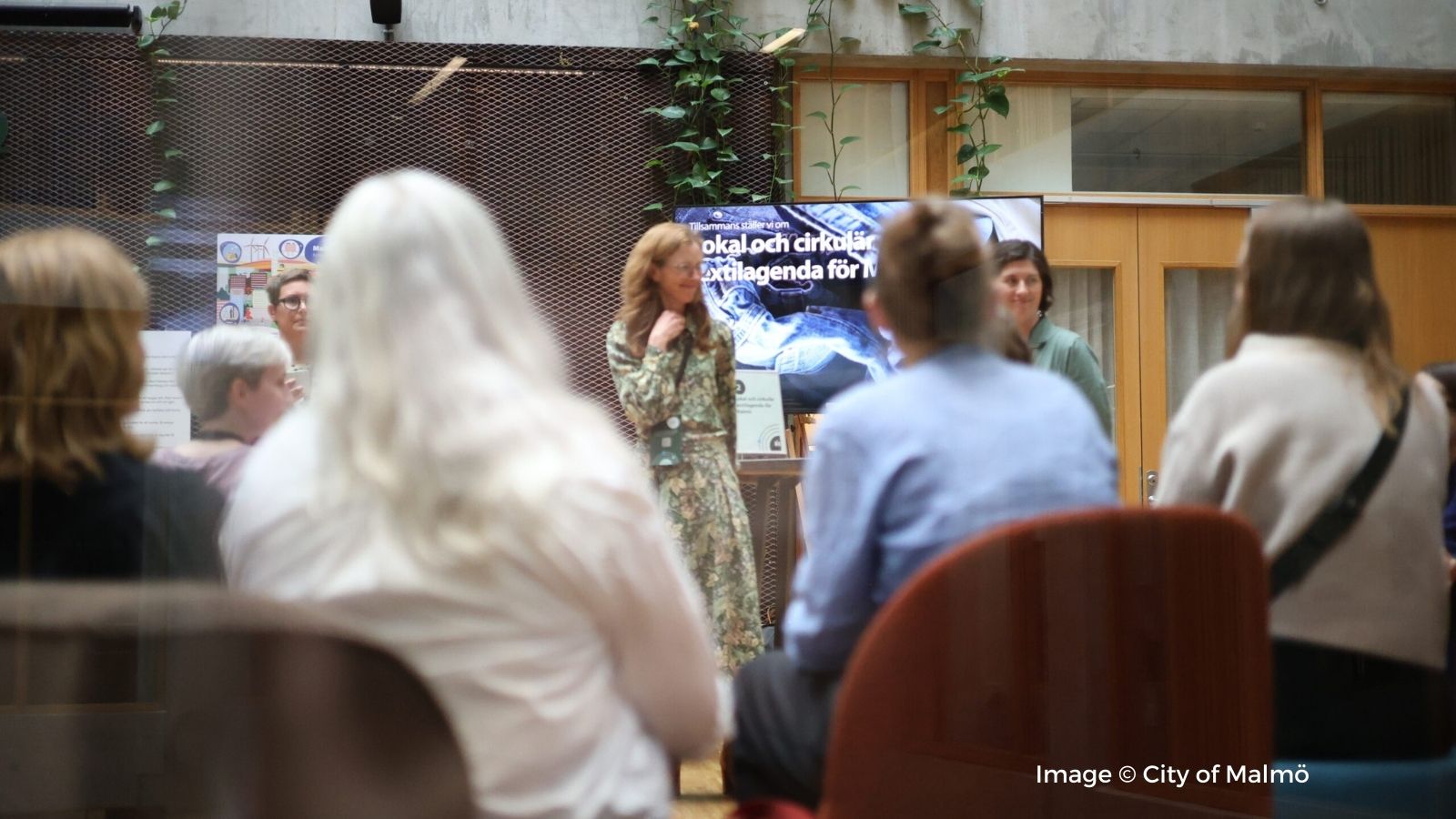Cities overcoming institutional barriers: Socially just climate action across municipal departments
This blog was written by Jannis Niethammer and co-authored by Emily West and Daniel Botha from ICLEI Europe.
Climate action only truly succeeds when everyone can take part. In our previous blog post, we explored why community inclusion is essential for effective climate action and how cities can begin to dismantle structural barriers that exclude certain groups. We showed that inclusive climate action is not only possible, but practical when cities focus on mapping barriers, tailoring communication, and working with trusted community partners.
However, for these efforts to last and grow, they must become part of how cities operate every day. Even successful local projects can struggle to scale or sustain their impact if they remain separate from broader municipal structures. To make inclusion a long term reality, municipalities must work towards mainstreaming socially just climate action by building the right mandates, internal capacity and supportive conditions. Drawing on learnings from the INCLU:DE project cities, such as Bonn, Dortmund, Essen, Heidelberg, and Ludwigsburg, we highlight four key challenges in city administrations and practical strategies for turning them into opportunities for transformation.
Strategy 1: Building capacity to collaborate across departments
Socially just climate action cuts across traditional departmental boundaries. It is most effective when it brings together expertise from diverse departments, such as climate, energy, social affairs and public participation. Yet, without careful coordination, this cross-cutting work can easily fall through the cracks.

Through the INCLU:DE project, cities like Bonn and Dortmund have addressed this by creating spaces for inter-departmental learning, capacity building and collaboration. Structured workshops and reflection sessions helped staff from different departments develop a shared understanding of what equitable climate action means in daily work. (see Chapter 3 of the INCLU:DE Practitioner’s Guide). These participatory learning spaces created a common ground to connect different perspectives, raise awareness, and strengthen internal capacity to include equity considerations into (more) municipal activities. Similarly, the City of Malmö has established a Climate Transition Team, to coordinate the city’s work on climate neutrality.
Strategy 2: Use partnerships strategically
Working directly with target communities requires time and trust. Capacity constraints can limit the ability of staff to assess equality outcomes or engage meaningfully with underrepresented groups.
A practical way to bridge this gap is to build long-term partnerships with civil society organizations that already have local trust. In Bonn, the locally embedded “Climate Districts” provide a good model for new pathways in community-centered climate work. Each district is led by a trusted civil society actor, supported by the city’s coordination structure, the ‘KompetenzNetz’. This collaboration allows climate action to respond directly to local priorities and needs while creating less administrative burden for municipal staff.

Strategy 3: Rally political support and build strategic mandates
Political and financial frameworks are often the first challenges. Support and funding for climate action can change with elections or shifting priorities. In times of financial constraint, climate programs that integrate social equity may be seen as competing with core social services rather than complementing them.
To counter this, cities need strong political support and strategic mandates that clearly link climate and social goals. Integrating equity often means adjusting existing procedures, reframing goals, and allocating resources; all of which depend on political will. One way to strengthen this support is to share project results with political decision-makers. For example, both Dortmund and Ludwigsburg (Germany) have raised the visibility of their inclusive projects through local media, regular updates to local politicians, and positive political feedback through the INCLU:DE project. These actions helped redesign funding programs to be more inclusive and encouraged shared political ownership. Other municipalities have also integrated equity objectives directly into climate or urban development plans, ensuring that socially just climate action is not a temporary project, but a long-term strategic priority.
Strategy 4: Advocate for the supporting framework conditions
To unlock their full potential in achieving equitable climate action, local governments need the right enabling framework conditions.
Laws and regulations play a major role. Cities frequently experience uncertainty around how municipal climate subsidies interact with social welfare systems. When residents risk losing benefits because a climate grant is counted as income, participation among low-income households drops. Municipalities can mitigate these challenges by developing internal guidelines and involve legal departments early on, to ensure that climate funding benefits those who need it most.
Collaboration across governance levels is equally important. EU and national policies, such as the forthcoming EU Social Climate Fund, influence how equitable climate action can happen on the ground. Cities and communities must be more directly consulted in these processes to ensure that regulations reflect local realities and capacities. At the same time, funding mechanisms like the Social Climate Fund can help scale successful local initiatives. Long-term, flexible funding is key to turning pilot projects — like community-led climate districts or social housing renovations — into systemic change.
A way forward
Overcoming these institutional barriers hinges on investment in collaborative structures – within city departments, with local partners, and across governance levels. Embedding equity into municipal practice is not a one-off effort but an ongoing process of learning, reflection, and adaptation. By making climate and social goals work together, encouraging collaboration across departments, and obtaining political support, cities can move beyond project-based inclusion toward a culture where socially just climate action becomes an integral part of governance.
These practical strategies for tackling institutional challenges are part of a broader effort to shift from just incentivizing to genuinely empowering local climate participation. Drawing on the practical experiences from the cities participating in the INCLU:DE project, these insights are compiled and explored in the new publication “From Incentivizing to Empowering: A practitioner’s guide to equitable climate action in cities”.
At COP30 in Belém, the INCLU:DE project showcased how cities in Germany and around the world are advancing just and inclusive climate action. During a session at the German Climate Pavilion, city representatives and experts discussed what it takes to make climate action work for everyone, not just those already benefiting from existing systems. This new publication, presented in this session, distills lessons from the INCLU:DE project to help cities embed equity into everyday municipal work and decision-making.








